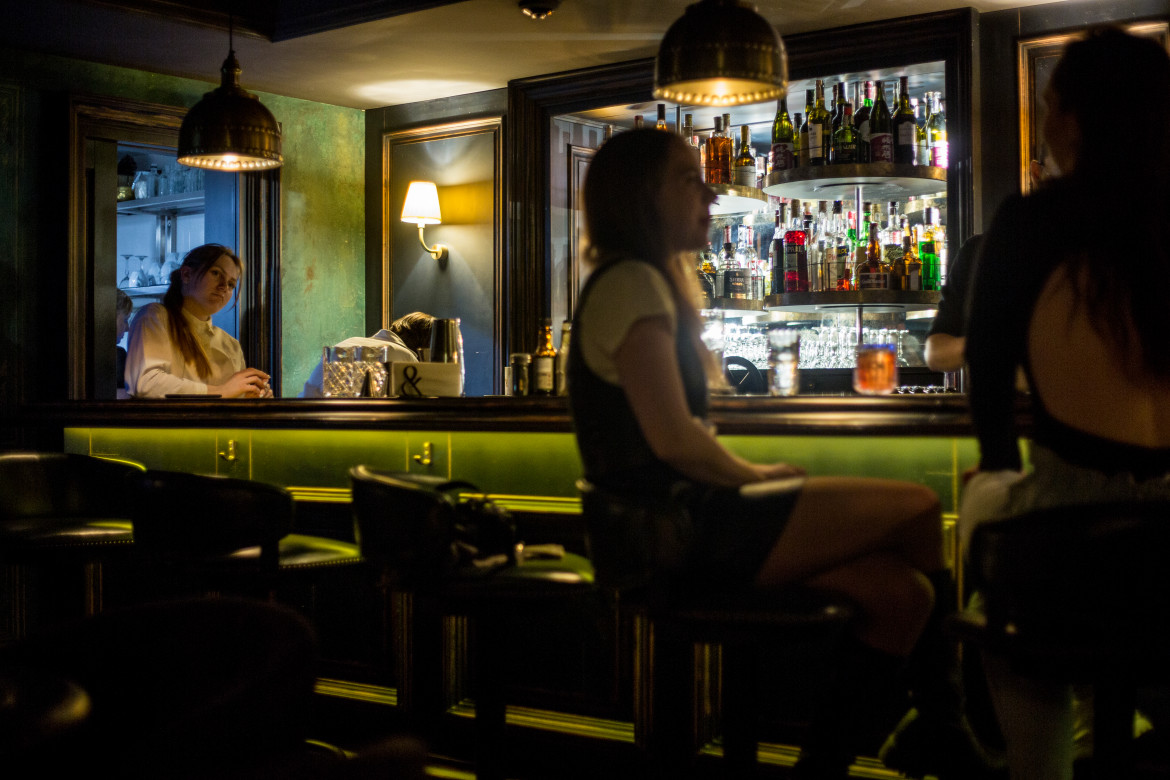Reportage
Life in Kiev is suspended between war and the mirage of normality
The quiet life of the capital has started to be affected by the sirens of war, and the residents, who showed their resilience by no longer caring about the alarms, are beginning to worry about them again.

For the past few months, Kyiv has returned to “normalcy,” although living here still requires some precautions.
To find an apartment, for example, it’s not enough just to use a real estate agency – if you have the means to do so, it would be better to contact a security expert, someone with a military background who would visit the house, knock on the walls, look at the floor plan, examine the balcony and make all kinds of inspections. In general, it is not advisable to live on high floors, in buildings without shelters or in the “red zone”: in the neighborhoods of ministries, power plants or military bases. In short, you find yourself asking neighborhood residents about whether or not there is an underground shelter there. Out of context, this makes for a rather surreal scene: “Hello, do you mind if I ask, where’s the bakery, the supermarket and the bomb shelter?”
Kyiv is completely oriented towards the Western world, welcoming it in the form of business models and the capitalist lifestyle. It is a city on the rise, in no way lacking compared to a European or U.S. metropolis, but at the same time one can see the echoes of socialism in the urban structure, in the prevalence of public spaces. Here, stores don’t just face the streets, but are also found in the courtyards of buildings, which are open to pedestrian traffic. After living in Kyiv for a while, one begins to find shortcuts between the buildings, where one comes across small stores of all kinds; there are also many “hidden” nightclubs. A neon sign, an arrow drawn on the wall, a colored lightbulb are enough to make it clear that behind the door of a basement there is a bar or a disco, where you can dance and drink until the midnight curfew, and if an air raid goes off there’s no need to run anywhere else for cover, because you’re already underground.
The patrons are young men of conscription age: the group in the least enviable position in the world right now. The dumbest question you can ask them is, “Aren’t you afraid that one day they’ll put a rifle in your hand and send you to the front?” Everyone will answer that they’re actually looking forward to it, because they love Ukraine and want to do something for their country; but between the lines, the real answer (and it would be absurd for it to be any other way) is that they’re scared out of their minds. After a few beers, one will confess that he wants to cut off one of his fingers to escape, another is afraid that the police will catch him smoking a joint and he will go to the top of the list to be sent to the front. In short, that’s one of the uses that are made of war: behave or you’ll be sent to the front.
Until a few days ago, one felt safe in Kyiv. Apart from the March 9 attacks, which seemed to be aimed mostly at the suburbs, there was no more need to go down into the shelters. Sirens have continued to sound once a day, but if you follow the various Telegram channels that have more details on the true extent of the risk, it becomes clear that the alert is not about the capital at all, or that it’s about a MiG fighter taking off from Russia or Belarus, planes that are so fast that no alert would give sufficient advance warning, so you might as well stay where you are. The siren sounds and life goes on, in bars, in the streets, in homes.
Then came the drone over the Kremlin, and the night alarms began again, this time accompanied by explosions near the center; and there are also falling debris and malfunctioning Ukrainian drones such as those shot down by the army over the home of the president (who was on a trip to the Low Countries that day).
The quiet life of the capital has started to be affected by these events, and the residents, who showed their resilience by no longer caring about the alarms, are beginning to worry about them again.
Internationals are the most cautious, stockpiling food supplies in shelters, and those who don’t have a shelter in their building can use the subway or those in the nearest blocks of flats, while the luxurious hotels nearby refuse to receive non-customers who find themselves there during the alarms and seek shelter. The public and private sphere, socialism and capitalism colliding – especially in emergencies, in the commodification of basic rights, like having shelter during a bombing.
Originally published at https://ilmanifesto.it/vite-sospese-di-kiev-fra-guerra-e-miraggio-della-normalita on 2023-05-07
